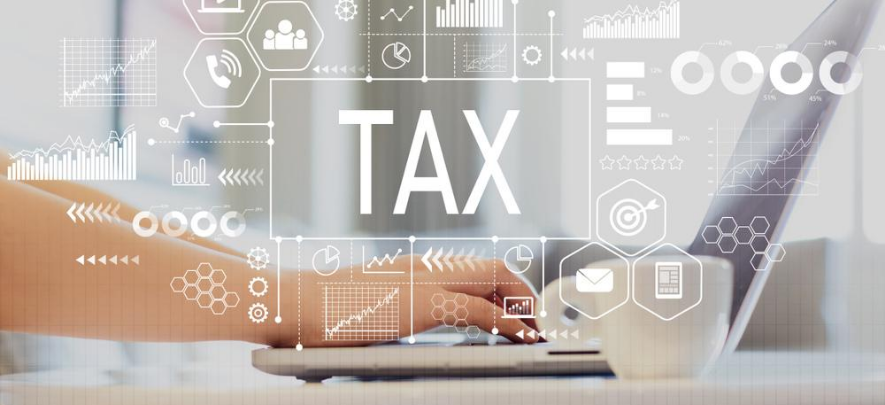VAT on digital services — what you need to know

Tax & Auditing
257 week ago — 10 min read
It has been almost five months since the implementation of the community quarantine due to the COVID-19 pandemic. Most of us had no choice but to stay indoors. Thus, we were forced to entertain, educate, and make ourselves useful within our homes.
With the help of the internet and other electronic platforms, we got to binge-watch our favorite shows, shop, buy groceries, start on our fitness goals, finish online courses, play online games, etc. Netflix, Google, Amazon, and even YouTube have somehow helped us to hold on to our sanity during these challenging times.
Also read: Top 10 movies every entrepreneur must see during lockdown
Seeing that this pandemic and the community quarantine will likely to continue until the end of this year, most of our transactions are expected to remain online. Companies adopted work-from-home set-ups. Schools and universities started using online platforms to conduct classes. Meetings are done online and businesses started selling online. Indeed, the pandemic has resulted in a “leapfrog” — the widespread adaptation of digital and online transactions.
Most ASEAN countries such as Malaysia, Indonesia, Vietnam, and Singapore introduced their own digital services tax this year.
Digital Economy Taxation Act
The growth of the digital economy, coupled with the government’s need to generate funds to continue fighting the pandemic, has led to House Bill No. 6765, or the Digital Economy Taxation Act which was filed on May 19. Last week, on July 29, the House Committee on Ways and Means approved a substitute bill imposing a value-added tax on the sale of goods and services by foreign and domestic enterprises conducted via electronic and digital platforms.
The bill seeks to amend the National Internal Revenue Code (NIRC) to impose 12% value-added tax (VAT) on digital transactions of non-resident digital service providers.
According to the substitute bill, “any person who, in the course of trade or business, sells barters, exchanges, leases goods or properties, INCLUDING THOSE DIGITAL OR ELECTRONIC IN NATURE, renders services, INCLUDING THOSE RENDERED ELECTRONICALLY, and any person who imports goods shall be subject to the value-added tax (VAT)”.
The bill defines “digital service provider” and “digital services” which are subject to VAT. As stated in the bill, a “digital service provider” may be:
• A third party that acts as a conduit for goods or services offered by a supplier to a buyer and receives commission;
• A platform provider for a promotion that uses the internet to deliver marketing messages to attract buyers;
• A host of online auctions conducted through the internet, where the seller sells the product or service to the person who bids the highest price;
• A supplier of digital service to a buyer in exchange for a regular subscription fee over the usage of the product or service; or
• A supplier of electronic and online services that can be delivered through an information technology infrastructure, such as the internet.
What is Digital Service?
“Digital Service” refers to any service that is delivered or subscribed over the internet or other electronic network and cannot be obtained without the use of information technology and where the delivery of the service may be automated. This includes (a) online licensing of software, update, and add-ons, website filters, and firewalls; (b) mobile applications, video games, online games; (c) webcast and webinars; (d) provision of digital content such as music, files, images, text, and information; (e) advertisement platform such as online advertising space on intangible media platform; (f) online platform such as electronic marketplace or networks for sale display and comparison of prices of trade products or services; (g) search engine services; (h) social networks; (i) database and hosting such as website hosting, online data warehousing, file sharing, and cloud storage services; (j) internet-based telecommunications; (k) online training such as provision of distance teaching, e-learning, online courses, and webinars; (l) online newspapers and journal subscription; and (m) payment processing services.
More importantly, the bill defines a “buyer” as any person who resides in the Philippines and who acquires taxable digital services in the Philippines from a digital service provider either for personal consumption or for trade or business. This definition may have considered the destination principle which we use to determine whether or not a transaction with a non-resident is subject to VAT in the Philippines. This principle states that the transaction is taxed in the country where they are consumed or destined. Since the services will be consumed in the Philippines, it will be subject to VAT regardless of where the seller is located or where the services were rendered.
Currently, online sales of goods and services are subject to VAT if conducted or rendered in the Philippines. The bill retained provisions in the VAT law to this effect. Specifically, Section 105 states that services rendered in the Philippines by non-resident foreign persons will be considered as being rendered in the course of trade or business despite the rules on regularity. Similarly, Section 108 states that the phrase “sale or exchange of services” means the performance of all kinds of services in the Philippines. Retaining these provisions may be confusing if the intention of the lawmakers is to cover services rendered outside of the Philippines.
Also, under current rules, if a transaction with non-resident sellers is subject to VAT, the Philippine corporate buyer is in charge of withholding and remitting the VAT to the BIR. The new rules will now cover transactions with individual customers or B2C. However, individuals not doing business are not covered by the withholding VAT regulations and imposing them with this liability will understandably be an implementation nightmare. So any VAT collection and remittance to the BIR is proposed to be done by the sellers themselves or their representatives to be effective.
Also read: 3 takeaways from 'Accounting & Taxation Best Practices for MSMEs' webinar
Under the proposed bill, any non-resident digital service provider who, in the course of trade or business, engages in the sale or exchange of digital services rendered defined under this bill is now liable to register for VAT if: (1) the gross sales or receipt for the past twelve (12) months, other than those that are exempt under Section 109 of the Tax Code, have exceeded P3 million or (2) there are reasonable grounds to believe that the gross sales or receipts for the next 12 months, other than those that are exempt under Section 109 of the Tax Code, will exceed P3 million. It also mentioned that the BIR shall establish a simplified, automated registration system for the non-resident digital service providers.
The big question now is: How can we force the non-resident supplier outside our tax jurisdiction to register under the VAT law? And if they register under the VAT law, will they be considered as doing business in the Philippines for purposes of income tax? The current draft bill did not propose changes regarding the income tax rules. However, an effect on the definition of permanent establishment and doing business must be assessed to avoid unintended consequences, if any.
The VAT-registered non-resident digital service provider, notwithstanding the invoicing requirements, may issue an electronic invoice or receipt subject to the rules and regulations prescribed by the Secretary of Finance upon the recommendation of the Commissioner of Internal Revenue.
Additionally, no creditable input tax shall be claimed by the non-resident digital service providers.
Understandably, the government needs to collect more taxes to fund public spending needed to address this pandemic and its effect on our economy.
Hopefully, our lawmakers will evaluate the proposal carefully and consider the complexities of taxing digital transactions. Will the additional revenue compensate for the additional implementation and monitoring requirements that the government will have to put in place?
The additional tax will definitely affect the Filipino consumers, as it will mean increased subscription fees or more expensive goods and services from non-resident suppliers. If the stressed middle class can no longer afford the additional expenses, they will probably be forced to cancel their subscriptions and no taxes will be collected; or they can choose to pay the additional fees in exchange for what little enjoyment they get from it. Either way, we know that Filipino consumers will ultimately bear the burden of this tax.
Article by: Junaleen M. Magno
Image source: Freepik
To explore business opportunities, link with me by clicking on the 'Connect' button on my eBiz Card.
Disclaimer: The views and opinions expressed in this article are those of the author and do not necessarily reflect the views, official policy or position of GlobalLinker.
Posted by
Yusoph Aquino MauteYusoph is a senior manager in the Audit & Assurance Division of P&A Grant Grant Thornton. He is concurrently designated as senior manager of the Firm’s Technical...
View Yusoph 's profile
Other articles written by Yusoph Maute
Helping MSMEs survive in the new normal
221 week ago
Most read this week
Trending













Comments
Share this content
Please login or Register to join the discussion